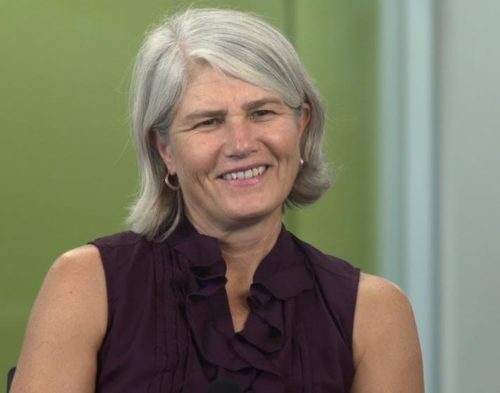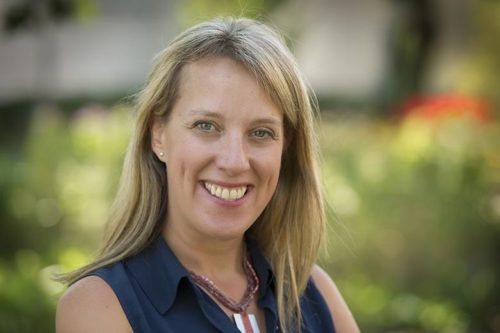
“Climate-smart soils” that enable farmers to both grow crops and stem greenhouse gases are the goal of a national University of Guelph-led project that will receive $1.65 million in federal funding, it was announced today.
The six-year project funded by the Natural Sciences and Engineering Research Council (NSERC) is the first soil-centred program to address a growing need for sustainable agriculture experts to improve food production while preserving soils and ensuring resilience to climate change.
The funding under NSERC’s CREATE (Collaborative Research and Training Experience) program was announced today by Kate Young, parliamentary secretary to the federal minister of science and sport.
The CREATE program supports training of highly qualified students and post-doc researchers.
Researchers from across Canada led by Prof. Claudia Wagner-Riddle, School of Environmental Sciences (SES), will study ways to use climate-smart soil (CSS) management to reduce greenhouse gas emissions and sequester carbon.
“I am delighted to see Claudia Wagner-Riddle studying climate-smart soils, and collaborating across departments in research and training,” said Guelph MP Lloyd Longfield, who presented a motion in 2018 for the House of Commons standing committee on agriculture and agri-food to study how the federal government might help the Canadian agriculture sector adjust to climate change and conserve water and soil.
He added: “This research will address many of the issues we studied, which are critical to our farmers adapting to the climate change emergency we are currently facing.”
“Canada’s agri-food sector needs leaders with the innovation skills to sustainably produce and grow food while protecting our environment and resources,” said Malcolm Campbell, vice-president (research).
“With our breadth and depth in agri-food research and education, the University of Guelph is well-positioned to lead this new climate-smart soil initiative to meet the needs for both highly qualified personnel and environmental sustainability to feed our growing world.”
Most of the world’s food is grown or produced on soils. Even as more farming is needed to feed a growing population, conventional agricultural production continues to cause such environmental problems as climate change emissions and soil degradation. In Canada alone, crop productivity lost to unsustainable farming practices costs about $3 billion a year.

Under climate-smart management, farmers might aim to increase soil organic matter, for instance, which can help reduce greenhouse gas emissions.
“Soils are really key,” said SES Prof. Kari Dunfield, who holds the Canada Research Chair in environmental microbiology of agro-ecosystems.
Soil microbes emit greenhouse gases, including nitrous oxide and carbon dioxide. At the same time, properly managed soils can serve as sinks – akin to forests — to remove and sequester carbon from the atmosphere.
“Soil is the place where we have the ability to start controlling and minimizing greenhouse gas emissions. We need to find that balance,” said Dunfield.
The federal funding will allow researchers to train dozens of needed experts – undergraduate and graduate students as well as post-docs — in the field. In the coming year, the consortium will offer a U of G-based course on soil ecosystems, sustainable agriculture and climate-smart soil practices.
Dunfield said many of those students will take their soil ecosystem knowledge to work with public and private organizations
Besides Wagner-Riddle and Dunfield, the project includes Profs. Helen Hambly, School of Environmental Design and Rural Development; and Alfons Weersink, Department of Food, Agricultural and Resource Economics.
The CREATE-CSS team will involve researchers from U of G, McGill University, Dalhousie University, the University of Toronto, the University of Manitoba and the University of Saskatchewan. Other partners are industry and farming organizations, governments and non-governmental organizations, international development agencies and private companies.
